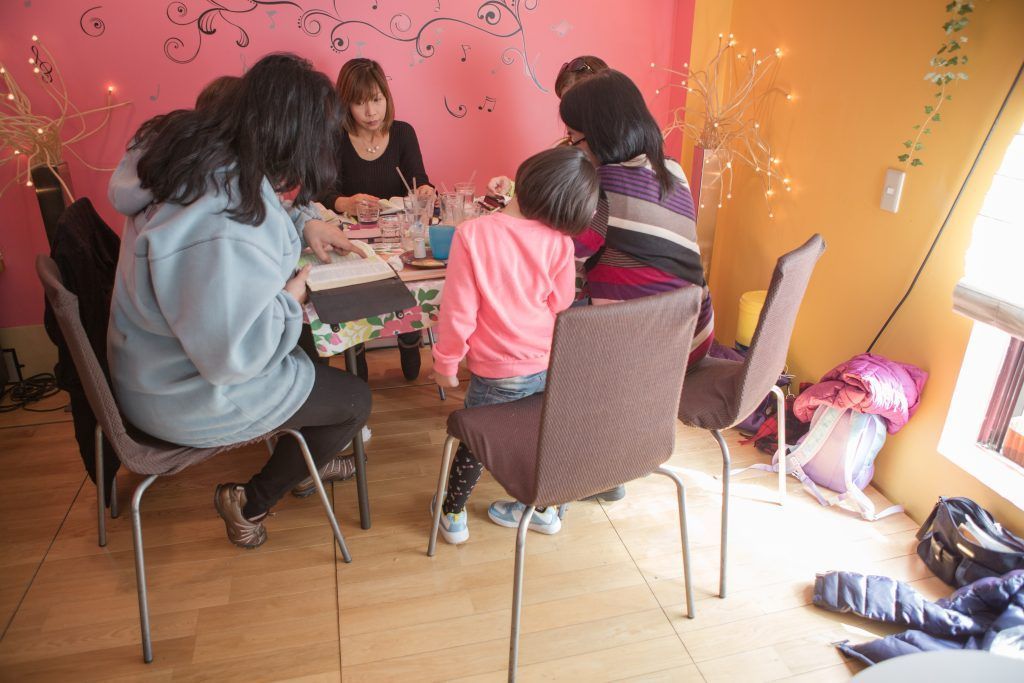As a worker in Tokyo, I’m often asked, “What is a day in the life of a missionary ?”
Well, which day are we talking about, exactly?
How about my first day training at SonRise Cafe ? Or, our first month grocery shopping – trying to read Japanese labels to distinguish between sugar and salt, laundry detergent and bleach?
What about Christmas time with a different outreach every week, sharing the Gospel at every turn? Or, the first time I was able to ask a train station worker for help in Japanese?
That week we got to share our testimonies with 200 freshman high school students? T he day someone made a decision to follow Jesus?
Those were some pretty great days.
But how about yesterday? I woke up and walked past the pile of laundry I have yet to fold. I rushed out the door, bought a cheap cup of coffee from Family Mart, and crammed for my kanji test on the packed commuter train.

The train in Tokyo is the busiest train station in the world. Photo by TEAM
I went to my 96th Japanese lesson. I headed to SonRise Cafe for the 190th time to get ready for my 45th day of kindergarten English classes. A boy picked his nose and wiped it on my roll sheet. We learned about the letter ‘G’.
I stopped by the grocery store on my way home, without any trouble grabbed some stuff for dinner, and cooked my 194th meal. I asked my husband, Matt, about his 300th day in the TEAM Japan office. I relaxed on the couch for awhile. I did some homework. And then I went to sleep, without folding the laundry.
Boy, that’s the kind of stuff missionaries really like to write home about.
Many missionaries (though certainly not all) tend to be adventurous, excited by the prospect of living abroad, enthusiastic about throwing themselves into a different culture.
Now don’t get me wrong, living in Tokyo is awesome. I pass through the world’s busiest train station almost every day and I can order $1 plates of sushi from a touchscreen.

Women gather for a Bible Study at SonRise Cafe. Photo by TEAM
I work at SonRise Cafe , a Christian coffee shop that facilitates 30 kindergarteners (and their moms), four elementary schoolers, and six adults for English classes, along with three Bible studies, and one church service all on a weekly basis.
Amazing? Yes. Glamorous? Not really.
Most days, I wish the world’s busiest train station was a lot less busy. I definitely can’t afford to go out for sushi every day (even if it is only $1 per plate). And a lot of my job involves herding kindergarteners, wiping down tables, and doing dishes.
However, if truth be told, it’s kind of a relief. A lot of life is exceptionally ordinary, no matter where you live or what you do, and being a missionary is no exception.
So, as I stand crammed on my 584th commuter train, as I scrub my 467th glass, and as I finally get around to folding my laundry, I join Brother Lawrence, the monastery kitchen worker, who reminds us: “We ought not to be weary of doing little things for the love of God, who regards not the greatness of the work, but the love with which it is performed.”




















